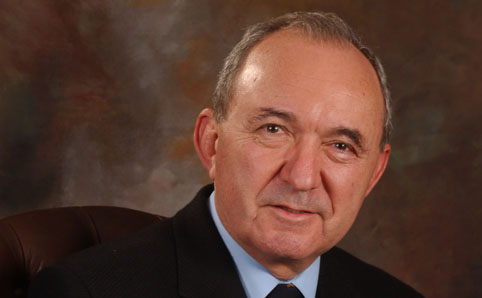Latest News Archive
Please select Category, Year, and then Month to display items
12 October 2020
|
Story Arina Engelbrecht
|
Photo Supplied
 Arina Engelbrecht from Organisational Development and Employee Well-being believes physical activity has a number of benefits for one’s health, including stress relief.
Arina Engelbrecht from Organisational Development and Employee Well-being believes physical activity has a number of benefits for one’s health, including stress relief.
Being physically active plays a big role in preventing the development of mental-health problems and in improving the quality of life of people experiencing mental-health problems.
Treatment for depression
Physical activity can be an alternative treatment for depression. It can be used as a stand-alone treatment or in combination with medication and/or psychological therapy. It promotes all kinds of changes in the brain, including neural growth, reduced inflammation, and new activity patterns are formed that promote feelings of calm and well-being. It releases endorphins – powerful chemicals in the brain that energise your spirit and make you feel good.
Physical activity can be very effective in relieving stress. Research in adults has found that physically active individuals tend to have lower stress levels compared to individuals who are less active. It also leads to improved sleep. When a person sleeps better and feels more rested, overall quality of life improves. They cope better with daily life stressors.
Reduce Alzheimer's risk
Regular physical activity can reduce your risk of developing Alzheimer's disease by up to 50%. It can also slow down further deterioration in those who have already started to develop cognitive problems. It stimulates the brain’s ability to maintain old connections as well as to make new ones.
A study asked people to rate their mood immediately after periods of physical activity (e.g. going for a walk/run, cycling, doing housework) and periods of inactivity (e.g. reading a book or watching television). Researchers found that participants felt more content, more awake, and calmer after being physically active compared to after periods of inactivity.
In conclusion, people who are physically active feel a sense of well-being, feel more energetic throughout the day, sleep better at night, have sharper memories, and feel more relaxed and positive about themselves and their lives.
“Being physically active not only changes your body, it changes your mind,
attitude, and your mood.” – Arina Engelbrecht
UFS awards honorary degree to Justice Richard Goldstone
2012-01-26
 |
| Justice Richard Goldstone |
A huge honour will be bestowed upon the University of the Free State (UFS) when the world renowned Justice Richard Goldstone will be receiving an honorary degree at the official opening of our university.
The Doctor of Laws (honoris causa) degree will be conferred on Justice Goldstone on Friday 3 February 2012 at 10:00 on our Bloemfontein Campus.
Mr Richard Freedman, Director of the South African Holocaust and Genocide Foundation, and Judge Mahube Molemela, Justice of the Free State High Court, are amongst the prominent figures expected to attend this event.
Justice Goldstone served in the Constitutional Court from 1995 to 2003. Prior to that, he was a judge of the High Court and from 1989 a judge of the Supreme Court of Appeal. From 1994 to 1996 he was the first Chief Prosecutor of the United Nations Criminal Tribunals for the former Yugoslavia and Rwanda. He is presently a Senior Fellow at the Jackson Institute at Yale University in the United States. Over the past 18 years he has become a leading expert on international criminal law.
Prof. Neels Swanepoel, Head of the Department of Law of Procedure and Law of Evidence, said the faculty is proud to honour Judge Richard Goldstone for his outstanding legal career and in particular for his contribution to the development of international criminal justice.
“As Chief Prosecutor for both the International Criminal Tribunal for the former Yugoslavia (ICTY) as well as the International Criminal Tribunal for Rwanda (ICTR), he has contributed to precedent-setting judgments on genocide, war crimes and crimes against humanity. His publications on various aspects of International Criminal Justice have contributed towards the stage where those bearing the greatest responsibility for human and humanitarian rights violations, will face justice.”
Prof. Swanepoel says judge Goldstone has contributed towards laying the foundations for conflict resolution in societies that have transformed from repressive to democratic rule and to what is now referred to as ‘transitional justice’.
On Thursday 2 February 2012 at 19:00, Judge Goldstone will deliver a Prestige Lecture on ‘The Future of International Criminal Justice’ in the Auditorium of the C.R Swart Building on the UFS Bloemfontein Campus.
Media Release
26 January 2012
Issued by: Lacea Loader
Director: Strategic Communication
Tel: 051 401 2584
Cell: 083 645 2454
E-mail: news@ufs.ac.za